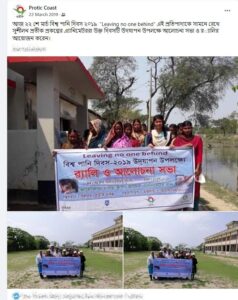This is a pre-publication draft of : Stillman, L., S. Kethers, et al. (2009). “Adapting corporate modelling for community informatics.” VINE: The Journal of Information and Knowledge Management Systems 39(3): 259 – 274.
Purpose
To address the need for responsive methodologies to investigate how ICTs are used in non-business and non-corporate environments.
Design/methodology/approach
The article, based presents a case study on developing an IT strategic plan in a community organization using the process modelling and analysis methodology called ‘Co-MAP’.
Findings
Co-MAP as a methodology is significant in being a participatory, responsive, and non-obtrusive tool to work with welfare workers in getting to articulate information, knowledge and technical issues for decision-making.
Research limitations/implications
The research provides a way of obtaining knowledge about structuring of social-technical relationships in a welfare organization through a sympathetic approach to its business and culture.
Practical implications (if applicable)
Co- MAP could be fruitfully used in other organizations, though whether this needs an external facilitator to carry out the process and manage the complex data analysis process is a moot point.
Originality/value
The significance of this case study is that it develops a model for adaptation of how to research and represent data, information, and knowledge flows within a social services organization, for which there are few other detailed case studies.
Key Words: case study, community-based organizations, community informatics, process modelling, structuration theory.
VINE Draft paper
Related Stories
March 31, 2023






